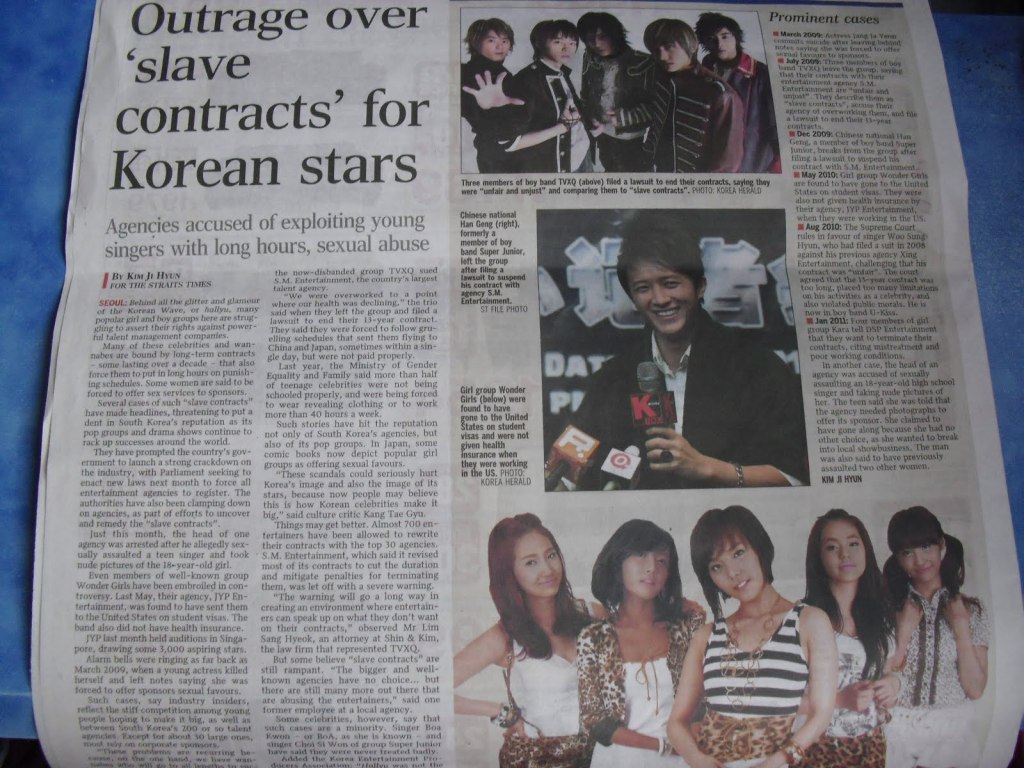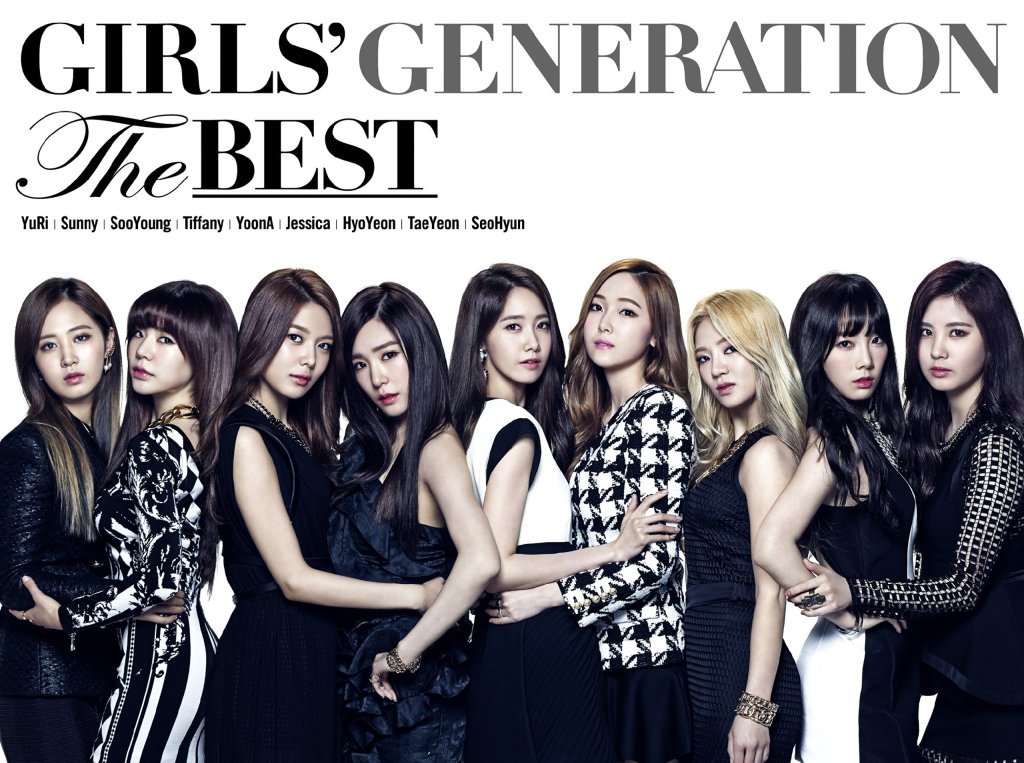On Sep 21st, 2014, Joon Young, a member from the K-pop boy band, ZE:A, tweeted that his entertainment company had been squeezing cash out of the team without giving team members a fair salary. He then posted his paycheck on Twitter, which showed that his monthly income was only $300.

Since the year 2012 when Psy’s “Gangnam Style” went viral on YouTube, K-pop has experienced a huge increase in its market share all over the world. However, behind the glamorousness of the K-pop industry, K-pop stars are actually experiencing unfair treatment and limited freedom.
The key players in the industry, big entertainment companies in Korea, take full control over the business from casting to production, and from marketing to distribution. They casted and trained talents, and when the artists finally get debuted, they will be forced to sign a long-term contract with the company. Some of the contract even last for 17 years, which is impossible to imagine here in America.
The contract is extremely harsh to artists and beneficial to the company. Artists have to work 7 days a week with only one-week holiday at the end of the year. Three former members from TVXQ complained that they could only sleep 3 hours a day and were not allowed start their own business unless getting permission from the company. Moreover, although TVXQ brought millions of dollars to the company each year, the members only received 1% of what they’ve earned. As a result of that, the three members ended up filing a lawsuit against the company and formed another band themselves.
This lawsuit, which lasted for 4 years, aroused widely concern over the so-called “slave contract” inside the industry. In 2010, the Fair Trade Commission in Korea finally realized the seriousness of the problem, and asked SM Entertainment, the entertainment company of TVXQ, to revise its unfair contract with the artists. SM Entertainment did that, and held a press conference to address people’s concern. Now, everyone seemed relieved, however, this was not the end of the story.
On May 15th, 2014, Kris, a member from the boy band EXO, filed another lawsuit against his entertainment company, and claimed that the intense working condition caused him adverse health problems. Five month later, another member from EXO, Luhan, followed Kris and asked to end the contract with the company. Several days later, Jessica, a member from one of the most well-known K-pop girl band, Girl’s Generation, claimed through weibo platform that she was kicked out of the team because the company didn’t allow her to start her own fashion business.

All of what happened above remind us that the “slave contract” is still there, and it not only hurt the interest of the artists, but also hurt the feeling of K-pop fans all over the world. In fact, this kind of situation is hard to be changed in a short period of time. As the K-pop industry growing bigger and bigger, the competition among entertainment companies and K-pop artists will only be more, not less. This made people worry if the growing speed of the industry surpasses the capacity it can actually handle, which made the industry vulnerable in its expanding process. However, there were also people arguing that this process is what every industry would experience during its expansion. No matter what the answer is, one thing is for sure: if the K-pop industry didn’t make any changes in the way they manage their artists, it will absolutely affect the future development of the industry.
Leave a Reply
You must be logged in to post a comment.